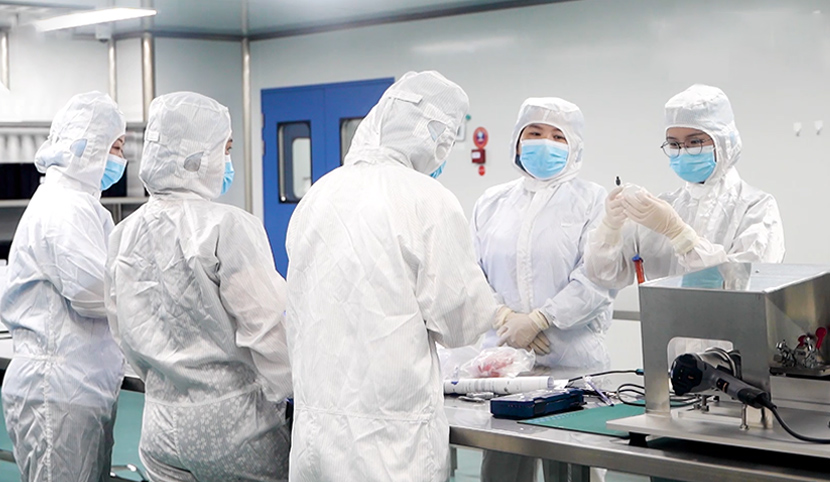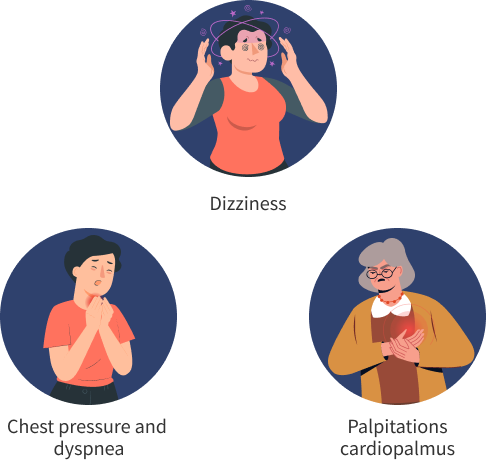

Patient-centered care and healthcare industry empowerment lie in everything we do.
Hangzhou Valgen Medtech Co. Ltd.
Transcatheter mitral valve edge-to-edge repair procedure
The transcatheter mitral valve edge-to-edge repair procedure is the most mature and reliable mitral valve intervention technique by far; this off-pump procedure requires neither thoracotomy nor extracorporeal circulation and has high perioperative safety and clear treatment advantages for senile patients who are highly-vulnerable when undergoing surgical procedures.
The technique has been developed for more than 20 years and delivered benefits to more than 200,000 patients worldwide. Its long-term safety and effectiveness have been verified.


Hazards of mitral valve diseases
Mitral regurgitation is the most common valvular disease of the heart (VDH) in China. Its incidence increases with age. About 7.5 million Chinese mitral regurgitation patients are in need of interventional therapies. Mitral regurgitation is highly prevalent in people aged over 65; in this population, mitral regurgitation is found in 1 out of 5 people. The mortality rate of the disease can be as high as 50% in patients who are not treated promptly; the hospitalization rate of patients with heart failure secondary to this disease can be as high as 90%. Mitral regurgitation can increase the burden on the heart. Early manifestations in patients include weakness and asthenia. If intervention is not administered promptly, over time the disease will overload the heart, giving rise to decreased pumping capacity; eventually, it could involve the lungs. By that time, the patient would manifest such symptoms as shortness of breath, palpitations, physical decline, inability to lie in a supine position, and/or lower limb edema.
Conventional treatment methods
-

 Drug therapyThis treatment method may relieve symptoms, however, it cannot radically cure degenerative mitral regurgitation (DMR). It is effective only in some patients with functional mitral regurgitation (FMR). Patients may develop resistance to this medication over time, leading to poorer therapeutic effects.
Drug therapyThis treatment method may relieve symptoms, however, it cannot radically cure degenerative mitral regurgitation (DMR). It is effective only in some patients with functional mitral regurgitation (FMR). Patients may develop resistance to this medication over time, leading to poorer therapeutic effects. -

 SurgeryThe surgical process is complicated, risky and time-consuming; the patient suffers from large surgical trauma and postoperative pain; moreover, the recovery process is slow. More than two thirds of the patients are ineligible for surgical treatment due to senile age, complications, and other risk factors.
SurgeryThe surgical process is complicated, risky and time-consuming; the patient suffers from large surgical trauma and postoperative pain; moreover, the recovery process is slow. More than two thirds of the patients are ineligible for surgical treatment due to senile age, complications, and other risk factors. -

 Interventional procedures (non-surgical treatment)Transcatheter mitral valve edge-to-edge repair procedure (TEER) is a major breakthrough in the medical field. It is a mature minimally-invasive procedure for the treatment of mitral regurgitation. The procedure is minimally-invasive, less time-consuming, and non-thoracotomic. Patients recover from the procedure rapidly and can return to normal life in two to three days postoperatively.
Interventional procedures (non-surgical treatment)Transcatheter mitral valve edge-to-edge repair procedure (TEER) is a major breakthrough in the medical field. It is a mature minimally-invasive procedure for the treatment of mitral regurgitation. The procedure is minimally-invasive, less time-consuming, and non-thoracotomic. Patients recover from the procedure rapidly and can return to normal life in two to three days postoperatively.

Patient stories
-


Interventional procedure for cardiac ostium replacement in a primipara
Ms. Yang was from Anhui Province; she had just given birth to her first baby 100 days earlier and was indulging in the happiness of being a mother when she was struck by a sudden illness which weighed her family down with worries.
Read More
-


Valgen Medtech DragonFly™ Protects the Cardiac Ostium of My Loved One
"I am lucky to have benefited from DragonFly™. I felt relieved when I knew I was to be treated with Dinova Medtech products by Professor Wang Jian' an and his team."
Read More
- 1
- 2









